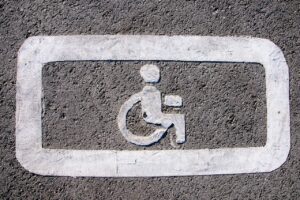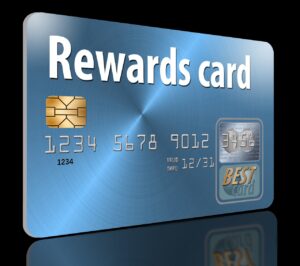You might be surprised to find out just how early on you can start building credit. Find out more from our credit expert Mubina Kapasi, CFA.
The question…
Good afternoon,
I struggled with my finances for a long time. Now that I’m on my feet and know what it feels like to be financially stable I want to do everything I can to help my kids be and stay financially responsible too. I really don’t want them to go through what I went through.
I’ve learned about credit as I was getting on my feet. I know how important having good credit is. How can I help my kids (15 and 17 years old) wrap their heads around what credit is and even get them started building their credit?
– Makenzie, H., Calgary, AB
The answer…
Hi Makenzie,
Teaching your children about money is one of the best lessons you can give. Unfortunately, schools grade you on math and geography, so the subject of money takes a backseat. It makes me so happy to read that you want to pass on the lessons you’ve learned to your kids.
Building good credit leads to a good credit score which goes a long way in life. One way to explain credit scores to your kids is by comparing them with school grades. The higher their grade, the more advantages they receive and the better they look to teachers and universities. Similarly, the higher their credit score, the better they look to lenders which leads to financial advantages. A good credit score can get them a student loan or a credit card easily, and better interest rates. This could save them thousands of dollars over a lifetime. It can also present better housing and job opportunities. Landlords and some employers check credit reports before they approve an individual as a tenant or employee.
A good grade is achieved through discipline and consistency. Similarly, a good credit score is achieved through financial discipline and consistent, on-time payments. Just as your kids’ academic performance is reported in a report card, their financial discipline will be reported in a credit report. Almost every entity with whom your kids will have financial dealings will report to credit bureaus about their payment history, any new line of credit availed, and whether they service their debts before the due date. This includes not just banks and card issuers but landlords, utility companies, and even mobile phone companies. They should know that even a single delayed rent check could affect their credit score. The 2 most popular bureaus in Canada are TransUnion and Equifax. They compile the information and then generate a credit score and credit report.
Teen checking account
To start with, let your kids manage their own money under your supervision. Your 15 and 17-year-old are eligible for a ‘teen checking account’. Consider depositing their monthly allowance in their accounts. This will give them a sense of budgeting and financial responsibility. How much of their allowance have they spent and on what? Will their balance last until the next allowance is due? This will empower them with the confidence of being able to manage money and teach them financial discipline which is a very important trait to have when using any form of credit.
Building credit
Since your kids are young, they’re starting with a clean slate which makes building credit easy. Helping them establish a credit history early can benefit them when they are financially independent. Here are some actions you can take to help in building credit for your kids.
Cellphone plan
At 15 and 17, they might have their own cellphone. If they do, consider getting them a cellphone plan in their name. Many cellphone companies report to credit bureaus, which will help your kids build good credit. Just keep in mind that if you’re paying the cellphone bills ensure you do so on time or you would be hurting your kids’ credit scores.
Add your kids as an ‘authorized user’
Consider adding your child as an authorized user on your credit card. In Canada, children under 18 may have access to their own card as an authorized user, but it generally won’t affect their credit history. The credit report and history impact typically apply to the primary cardholder only. However, once your child reaches the age of majority (usually 18 or 19, depending on the province), their activity as an authorized user may start appearing in their own credit history, depending on the credit card issuer’s reporting practices.
If you choose this approach, it’s a valuable opportunity to teach responsible credit habits. Set clear rules for usage, such as a spending limit, and, if possible, ask them to repay what they’ve spent by a specific date. This experience prepares them for independent credit use. Also, take time to review key terms on the credit statement with them, such as amount due, due date, minimum payment, and credit limit.
Student credit card
At 18, your kids should apply for a student credit card. These come without the usual annual fee and help in building credit while they study. Student cards also offer perks like cash back on groceries and other bills.
Secured credit card
A secured credit card works like any other card but it comes without the annual fee and requires a security deposit. The security deposit they pay would be the credit limit available on the card. They are ideal for people who have no credit history, like your kids.
Improving your credit score
While the steps mentioned above will help in establishing a credit history and building credit, it’s a good idea that kids are also aware of how to continuously work on improving their credit scores. Ask your kids to remember these 5 golden rules:
- Make all payments on time, pay off the balance in full each month and be consistent. This includes not just student loans and credit cards, but even rent and utility bills. Every missed payment is reported to the credit bureaus. Even if there’s a month when money is tight, they must ensure that they pay the minimum balance at least.
- Limit credit usage. For example, if the total credit limit available to them is $1000, across all their available credit, it is a prudent practice not to use more than 35% (in this case $350) at a time and pay it off promptly.
- As your kids enjoy the many benefits of a high credit score, including enticing credit card offers and quick approval, ensure they’re not tempted to apply for too many cards at once. That can hamper their credit score.
- Teach your kids how to pull their credit report and interpret it. A credit report can help identify fraudulent activities. For example, a fraudster may obtain a student loan in their name. This would appear in their credit report. Checking the report regularly can help catch such fraud early to mitigate how much damage is done.
All these activities are the consequence of having one important characteristic – being financially disciplined. Inculcate that habit in them and good credit and an improving credit score will follow.
Thanks for submitting your question!
Consolidated Credit’s executive director, Jeff Schwartz will review it and give his response here, along with any additional tips that our credit counsellors have to offer. If you need immediate assistance, please call us and a credit counsellor will get you the help you need.
Please note: We try to answer all questions within 48 hours. However, not all questions may be answered on the website. If your question is similar to one we’ve already answered, we’ll direct you to the appropriate response via email. If we need more information, we’ll contact you at the email provided.




